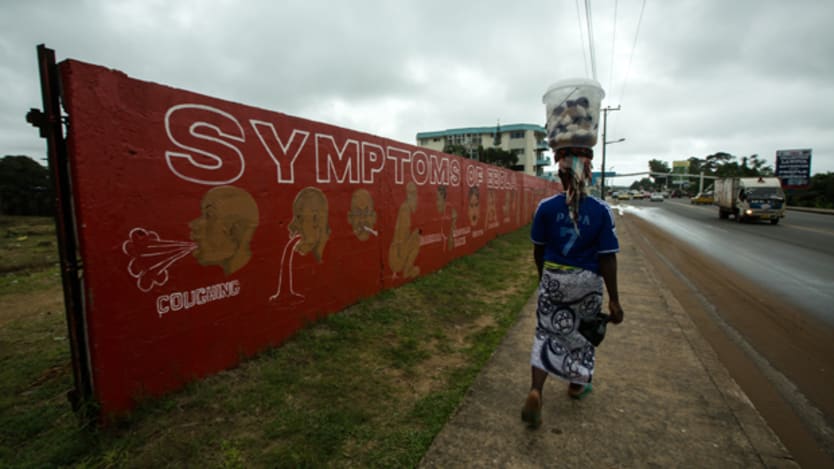
There is no doubt about it: Ebola is a deadly virus.
One just has to look at the fatal outbreaks in the Democratic Republic of the Congo from 1998 to 2000, Angola in 2005, and of course, the most recent crises in Guinea, Liberia and Sierra Leone.
Partners in Health’s Dr. Paul Farmer, however, thinks we're looking at Ebola the wrong way.
“This isn’t a natural disaster. This is the terrorism of poverty,” the former U.N. envoy to Haiti recently told The Washington Post.
Perhaps what is dangerous is not so much the virus itself, but our inability as developed countries to provide adequate support to strengthen health systems capable of delivering remedies to crises.
Indeed, what makes Ebola fatal is the way it causes a massive loss of the body’s vital fluids — up to 10 liters of day — along with proteins and electrolytes.
In the United States, where quality and effective medical support was on hand, nearly every patient went on to recover.
As in other public health crises, we’re quick to blame the victims.
At the peak of the HIV and AIDS epidemic, we shifted the focus away from our failures and focused instead on individual and community behaviors. Citing “depraved” sexual acts and “primitive” behavior, we attempted to shift responsibility away from ourselves.
Twenty years later, little has changed. We still blame the victim.
“We cite exotic burial rituals, diets of bush meat or a failure to cooperate with contact tracing efforts,” Farmer said. “We rarely reflect on our own failures.”
We neglect to ask why the same virus kills in African countries, but not in the U.S.
Farmer is preparing to reflect on his lifetime’s work, particularly drawing lessons learned from Ebola outbreaks, at today’s #KAPTalks. That’s the Twitter hashtag for a lecture series, put together in partnership by the European Union and the U.N. Development Program.
Named after the late development journalist Ryszard Kapuściński, the series has hosted more than 50 important figures in development so far, from Jeffrey Sachs to Crown Prince Haakon of Norway.
Each lecture this year takes place at a different European university, with the aim of fostering dialogue and a sense of responsibility among Europeans on what it means to engage in development work in less developed countries.
Adding to the importance of the lectures, 2015 has been declared the European Year for Development.
“This is a significant year. Governments are finalizing their post-2015 agenda and important development conferences are taking place around the world,” said Fernando Frutuoso de Melo, director-general for international cooperation and development at the European Commission.
Farmer’s lecture at King’s College in London will be followed by Afghan women’s rights activist Sima Samar in Ljubljana, Slovenia, and later by Korean development economist Chang Ha-joon in Bilbao, Spain.
By bringing top thinkers of today’s world to universities and through our webcast to people’s homes everywhere, we’re hoping this series, like tonight's Paul Farmer lecture on Ebola, gives us all a space to think about the thoughts pushed aside, to speak of the unspoken — to look at global, regional and national development issues in a new light, with a different perspective.
If our hands are tied to do nothing else, we owe the communities in developing countries at least that much.
Watch the lecture live on kapuscinskilectures.eu from 1 p.m. Eastern Standard Time / 6 p.m. British Summer Time / 7 p.m. Central European Time on April 20 and ask your questions to Paul Farmer via Twitter using #KAPTalks
Join the Devex community and access more in-depth analysis, breaking news and business advice — and a host of other services — on international development, humanitarian aid and global health.
